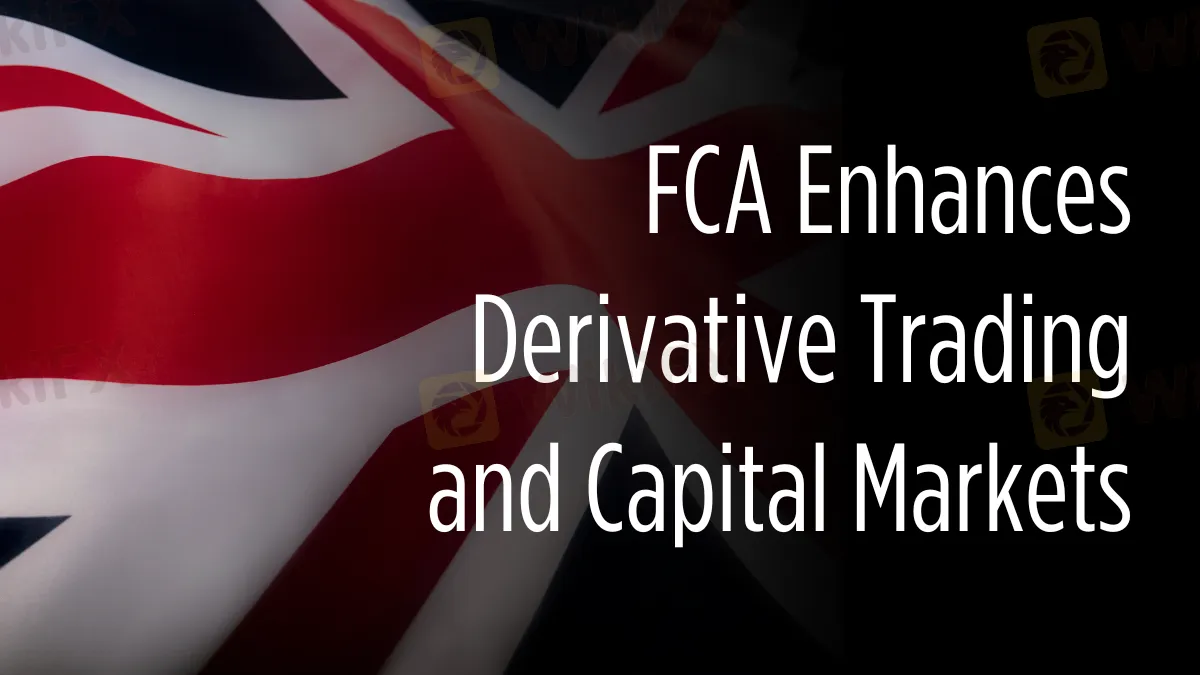简体中文
繁體中文
English
Pусский
日本語
ภาษาไทย
Tiếng Việt
Bahasa Indonesia
Español
हिन्दी
Filippiiniläinen
Français
Deutsch
Português
Türkçe
한국어
العربية
FCA Enhances Derivative Trading and Capital Markets
Abstract:FCA introduces new rules for public offers, trading, and investment research, aiming to strengthen the UK’s capital markets and global financial position.

The Financial Conduct Authority (FCA) has announced a comprehensive package of measures aimed at strengthening the UK's capital markets and boosting its status as a worldwide financial center. This project involves significant revisions to public offerings, admissions to trading, and derivatives trading responsibilities, all of which seek to improve market efficiency and investor safety.
Proposals for New Public Offers and Admissions Regime
The development of the Public Offers and Admissions to Trading Regime (POATRs), which will replace the present UK Prospectus Regulation, is a key component of the FCA's reform package. Companies must still produce a prospectus when admitting securities to public markets under the new guidelines. However, the need for a prospectus in future capital offerings will be restricted to certain instances.
These modifications are intended to simplify the process and lower the expenses involved with obtaining more cash. The FCA guarantees that investors obtain critical information while reducing financial constraints on firms by fine-tuning disclosure standards. This strategy allows for more effective capital raising, allowing businesses to obtain the required money while being transparent to investors.
Introducing Public Offer Platforms
The FCA also conducts consultations on plans to develop public offer platforms. These platforms provide firms with an alternative way to raise funds outside of typical public markets, such as direct engagement with individual investors. This program is intended to improve smaller firms' capital-raising capacities and guarantee that investors get clear, full information about investment terms and dangers. The FCA's goal is to promote development and innovation in the financial industry by expanding access to finance.

Payment Options Revised for Investment Research
Furthermore, the FCA has implemented new guidelines that provide asset managers more leeway in paying for investing research. The laws now allow for the 'bundling' of payments for research and trade execution, which is intended to increase market competitiveness and benefit investors. These guidelines link UK legislation with those of other countries, making cross-border transactions easier for asset managers.
These new payment alternatives were created after thorough collaboration, with significant changes made based on input. The FCA intends to ensure that these choices are operationally effective and adaptable to diverse kinds of businesses. The FCA strives to restore standards and prevent prior problems from recurring by resolving existing issues and offering improved consumer protection.
Derivatives Trading Obligations
The FCA's final package included suggestions for additional derivatives trading requirements. These approaches are designed to improve secondary market regulation and mitigate systemic hazards. The FCA intends to reduce market disruptions and promote greater financial system stability by enhancing the monitoring of derivative trading.
Sarah Pritchard, the FCA's Executive Director of Markets and International, stressed the importance of the measures. She remarked, “The package we announced today, along with recent changes to the listing requirements, would greatly strengthen the UK's position in wholesale markets. We must find a balance between safeguarding investors and enabling financial markets to flourish. We want to boost the industry and promote a vibrant investment research business by delivering accurate information and cutting needless expenditures.”
These measures constitute a significant effort by the FCA to modernize the UK's financial sector, increasing its worldwide competitiveness while preserving strong investor protection. The FCA's implementation of these measures demonstrates its ongoing commitment to ensuring a dynamic and resilient financial market.
Get the Latest Financial Market Updates Here! Stay informed and ahead of the curve!

Disclaimer:
The views in this article only represent the author's personal views, and do not constitute investment advice on this platform. This platform does not guarantee the accuracy, completeness and timeliness of the information in the article, and will not be liable for any loss caused by the use of or reliance on the information in the article.
Read more

The Hidden Checklist: Five Unconventional Steps to Vet Your Broker
Forex broker scams continue to evolve, employing new tactics to appear credible and mislead unsuspecting traders. Identifying these fraudulent schemes requires vigilance and strategies beyond the usual advice. Here are five effective methods to help traders assess the legitimacy of a forex broker and avoid potential pitfalls.

Doo Financial Obtains Licenses in BVI and Cayman Islands
Doo Financial, a subsidiary of Singapore-based Doo Group, has expanded its regulatory footprint by securing new offshore licenses from the British Virgin Islands Financial Services Commission (BVI FSC) and the Cayman Islands Monetary Authority (CIMA).

CFI’s New Initiative Aims to Promote Transparency in Trading
A new programme has been launched by CFI to address the growing need for transparency and awareness in online trading. Named “Trading Transparency+: Empowering Awareness and Clarity in Trading,” the initiative seeks to combat misinformation and equip individuals with resources to evaluate whether trading aligns with their financial goals and circumstances.

Malaysian-Thai Fraud Syndicate Dismantled, Millions in Losses Reported
The Royal Malaysia Police (PDRM) has received 26 reports concerning the Nicshare and CommonApps investment schemes, both linked to a major fraudulent syndicate led by a Malaysian citizen. The syndicate’s activities came to light following the arrest of its leader by Thai authorities on 16 December.
WikiFX Broker
Latest News
Top 10 Trading Indicators Every Forex Trader Should Know
ASIC Sues Binance Australia Derivatives for Misclassifying Retail Clients
WikiFX Review: Is FxPro Reliable?
Malaysian-Thai Fraud Syndicate Dismantled, Millions in Losses Reported
Trading frauds topped the list of scams in India- Report Reveals
YAMARKETS' Jingle Bells Christmas Offer!
AIMS Broker Review
The Hidden Checklist: Five Unconventional Steps to Vet Your Broker
Revolut Leads UK Neobanks in the Digital Banking Revolution
Fusion Markets: Safe Choice or Scam to Avoid?
Currency Calculator


